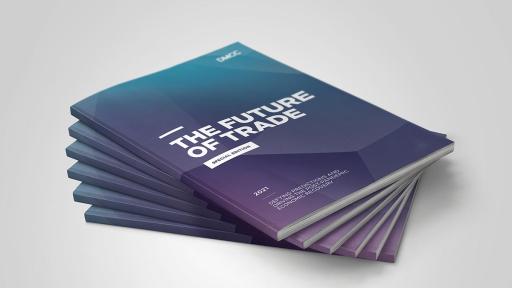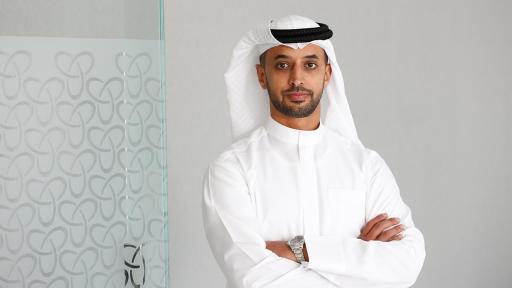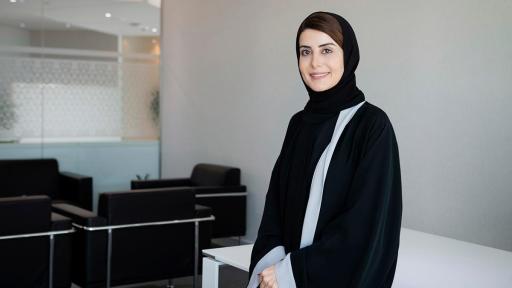GLOBAL TRADE DEFIES EXPECTATIONS IN 2021 AND DRIVES RECOVERY, FINDS LATEST DMCC REPORT ON THE ‘FUTURE OF TRADE’
- The US-China relationship will be central to the shaping of global trade
- Uptake of technologies will continue to transform global trade and trade financing
- A new age of protectionism identified as a key risk
- Sustainability remains top of the political and corporate agenda, despite the pandemic. Carbon pricing is set to emerge as a key global issue.
- Full report can be accessed here: www.futureoftrade.com
DUBAI, UAE, 9 June 2021 /PRNewswire/ -- Global trade will rebound in 2021 after showing surprising resilience in 2020 despite the economic challenges posed by the pandemic, according to DMCC’s latest special edition Future of Trade 2021 report titled, 'Defying predictions and driving the post-pandemic economic recovery'.
The report released today highlights two key global and regional takeaways: firstly, global trade will underpin strong global economic growth in 2021 and beyond, with the US and Chinese economies leading the way. This growth has defied expectations of double-digit annual declines, which had been estimated between 13-32% by the World Trade Organisation.
Secondly, Dubai, a major trade hub, saw its foreign trade growth rebound significantly in 2020, despite the economic challenges posed by the COVID-19 pandemic, with the second half of 2020 seeing a particularly strong jump in trade volumes, of 6% year-on-year. Dubai’s overall export values jumped 8% in 2020, on an annual basis.
Ahmed Bin Sulayem, Executive Chairman and Chief Executive Officer, DMCC, said: “In 2020, the outlook for global trade was bleak as the world sought to grapple with the impact of the pandemic. Today, the picture is much more positive, as evidenced by the findings of our latest Special Edition Future of Trade – 2021 report. But while global trade has shown its resilience, it is simultaneously in the midst of profound change. Technology, changing consumer behaviours, the drive to combat climate change, and geopolitics will all be key contributors to its reshaping in the years ahead. In this context, our research puts forward a number of tangible recommendations to governments and businesses seeking to navigate this new landscape and accelerate the recovery from the pandemic.”
According to the research, the most transformative element of the global trade outlook is technology. Blockchain, decentralised finance (DeFi) and other new and disruptive technologies will further accelerate trade growth. For example, DeFi protocols have seen a considerable amount of funds invested. Since the start of 2021 alone, the total value locked into DeFi has tripled from approximately USD 20bn to USD 60bn. As digital infrastructures grow, they will continue to accelerate a ground-breaking shift in trade from the national to the global.
Commenting on the release of the Special Edition report, Feryal Ahmadi, Chief Operating Officer, DMCC, said: “Following a challenging and uncertain period, the evidence presented in our Future of Trade report suggests an optimistic outlook. Global trade has defied all expectations and will underpin global economic growth. While geopolitics will continue to present challenges and impact the global trading system, the adoption of technology will continue to shape the future of trade. An important development over the last twelve months has also been the pivot of governments, companies and investors towards sustainable practices in international trade – now high on the agenda. What the report ultimately reiterates, in line with our previous findings, is that international coordination and collaboration, and technology remain the key enablers and drivers of the recovery.”
On the geopolitical front, fears of protectionist policies persist and are propelled by ongoing US-China trade tensions, rising economic nationalism, and the widening economic disparity between lower and middle-income economies. Alongside this, in a significant development for sustainability and global trade, the EU’s drive to harness a carbon pricing practice, under the anticipated Carbon Border Adjustment Mechanism (CBAM), or “Carbon Pricing”, has been criticised as a form of protectionism, and as such, has the potential to further exacerbate existing geopolitical tensions. The findings suggest that while a 'new age of protectionism' is a key risk in the wake of the pandemic and increasing discussions around US-China decoupling, outright protectionism will be kept at bay because it is costly, unpredictable, and impacts jobs. Instead, economic nationalism is more likely to occur.
While there were fears that the pandemic would see sustainability drop down the political and corporate agenda, that has not been the case. Rather, China, Japan, the US, South Korea and Canada are among nations to have announced more aggressive net zero targets. Further, companies and investors have ramped up their sustainability efforts and they are set to grow exponentially in the years ahead. For its part, CBAM has the potential to significantly disrupt international trade and raises questions around how to accurately measure emissions from complex supply chains. Once again, technology and artificial intelligence may provide at least part of the answer for companies and governments seeking to make accurate assessments relating to sustainability within their trade agendas.
The Future of Trade report puts forward a number of key recommendations to business and government:
- To promote a further sustainable trade acceleration, governments must diversify their global trade relationships to foster economic transformation for job-intensive growth, in order to tackle youth unemployment and underemployment during the recovery. Businesses and governments alike must remain agile and innovative to navigate ongoing market volatility and unlock unique opportunities that have emerged from the pandemic.
- Businesses should increase investment in digital technologies of the future, to reduce costs and build cross-sector synergies. Firms should elevate the role of research and development to incorporate sustainable practices, some of which will utilise new technology.
- Amid rising protectionism, companies should take advantage of and make strategic usage of free trade zones when it comes to agreeing commercial trading contracts. Governments must ensure the full utilisation of macroeconomic and financial tools to promote mutually beneficial trading relationships to avoid falling back on tariffs.
- Given its potential for protectionist misinterpretation, CBAM implementation is unlikely to be smooth and governments must create a more practical and politically palatable mechanism. Broader country collaboration is required. One such method is via the improvement of ESG practices across governments and companies in assessing cross-border investment and trade flows, in equities, bond markets and in foreign exchange.
During the launch event, global trade experts joined a panel discussion to share their views on the report. Panellists included Khatija Haque, Head of Research & Chief Economist, Emirates NBD; Roberta Piermartini, Chief of Trade Cost Analysis, World Trade Organisation; Yanislav Malahov, crypto and blockchain technology expert and Founder of Aeternity; and Marcus Treacher, Chief Executive Officer of CB Investment Growth Holdings and Board Member of Clear Bank and RTGS Global.
To read the full report by DMCC, please visit: www.futureoftrade.com
- Simon Penney, UK Trade Commissioner for the Middle East and Her Majesty’s Consul General to Dubai: “We want to work together in areas where we have common objectives. For example, our partnership with the UAE on renewable energy. The UAE is a global leader in solar, and there are many examples of British renewable energy companies contributing to the UAE’s diversification agenda. Investment goes both ways: Masdar has already invested heavily in UK wind farms and contributed to the UK’s achievement in the first quarter of 2020, where wind and solar energy accounted for 47% of the UK’s electricity. This is just one example of many, but the bottom line is that we are keen to work collaboratively with governments and businesses in the GCC to meet our shared goals.”
- Barbara Weisel, Managing Director, Rock Creek Global Advisors: “There is a reason why it is taking time for US-China talks to get underway – there are many considerations. And the Biden administration is conscious of the fact that if it does anything that looks like is it being weak on China, it’ll be attacked. […] The US is definitely shifting away from a strictly bilateral or even unilateral approach, to a more plurilateral - though perhaps not multilateral - approach. The Trump Administration’s policies resulted in reflection by many of our allies, most prominently, the EU on its own foreign and economic policy approaches. So, as we look forward to how US-EU cooperation will evolve; it is important to recognize that that the EU – and not just the US – is thinking about how it wants to engage. The US and the EU clearly recognise that there is value in working together.
- Wendy Wang, Chief Information Officer, HSBC Commercial Banking: “Digital developments signal a changing competitive environment. Companies across different sectors, such as in the garment and automobile sectors, must ensure they are not left behind this wave of innovation and digital transformation that’s being led by cutting-edge tech competitors. We have seen many companies become irrelevant very quickly; success depends on the speed and efficiency of risk management.”
- David Hardoon, Senior Advisor for Data and Artificial Intelligence, UnionBank of the Philippines: “We need to acknowledge and identify how change is coming and how to prepare the workforce for it. Under COVID-19, this is happening at a far more accelerated rate; exemplified by the job market where jobs that previously allowed for human-to-human interaction simply do not anymore. This period has allowed us to get a flavour of what we need, be it human interaction (physical and digital) or the things we need to automate. How we acknowledge that this change is happening and implement it, but also accelerate it within the existing and pending workforces, is key. Ultimately, this is a period of augmentation – capacity is being freed up.”
- Charles d’Haussy Managing Director - APAC at ConsenSys: “In this world of multilateralism and geopolitics at play, what we see central bank digital currencies and cross-border commerce in general migrating from blockchain and DLT. People are migrating away from private networks, from intranet types of infrastructure to global infrastructure. More generally, digital infrastructure is moving from the national to the global.”
- Armand Widjaja, President Director, Central Capital Venture: “Rather than creating a world data platform, if it’s possible, I would rather use a blockchain platform to do so in reaching an agreement over some of that data. Let big businesses compete and decide on their own before we start introducing broader regulations. If we do need to come up with regulations around data, then ultimately, these regulations will always be catching up, and this is even before an international agreement is reached. The private sector will likely lead on this agenda.”
- Rola Abu Manneh, Chief Executive Officer for Standard Chartered UAE: “Accelerating ESG focused investing will have a critical impact on capital flows which will increasingly seek out markets that have laid the groundwork for sustainable development including action to reduce carbon footprint. Trade will continue to drive the UAE’s economy and hence the sustainable foundations we are laying will ensure that the UAE will continue to be a global trading hub.”
- Greg Hodkinson, Senior Advisor and former Chairman, Arup: “It is mathematically impossible to get anywhere near net zero in the time limit set by countries, unless infrastructure is at the heart of it. It is therefore essential to address this right now; and it must become a central part of the discussion in the future. It is clear that we must critically evaluate the infrastructure being invested in; if we don’t invest in the infrastructure that is going to support a sustainable whole-life use, then we’re effectively locking in an unsustainable future, with no way of addressing the scientific need to very quickly reach net-zero.”
Media Enquiries:
DMCC
PR & Corporate Communications
[email protected]
About DMCC
Headquartered in Dubai, DMCC is the world’s most interconnected Free Zone, and the leading trade and enterprise hub for commodities. Whether developing vibrant neighbourhoods with world-class property like Jumeirah Lakes Towers and the much-anticipated Uptown Dubai, or delivering high performance business services, DMCC provides everything its dynamic community needs to live, work and thrive. Made for Trade, DMCC is proud to sustain and grow Dubai’s position as the place to be for global trade today and long into the future. www.dmcc.ae












